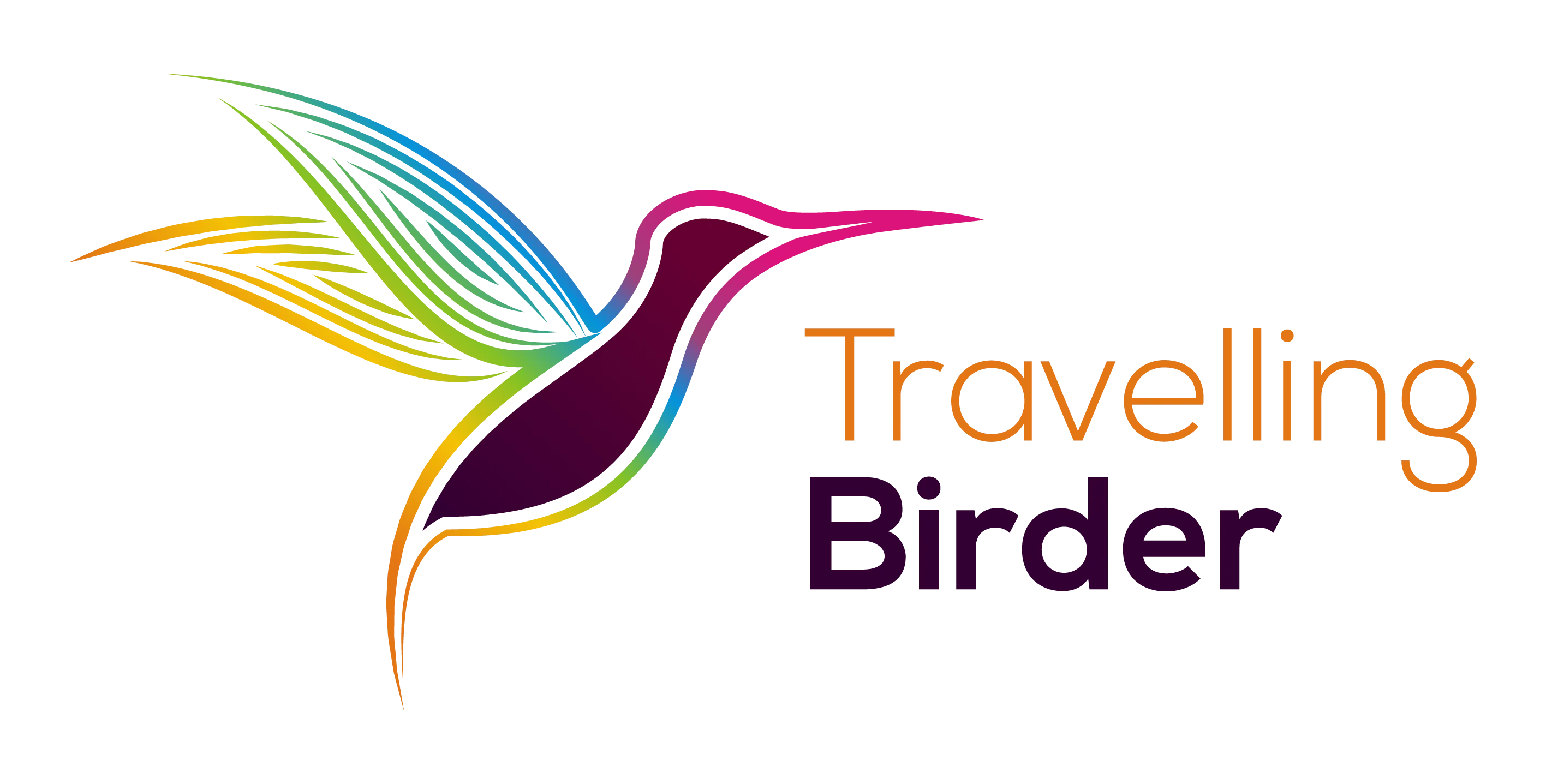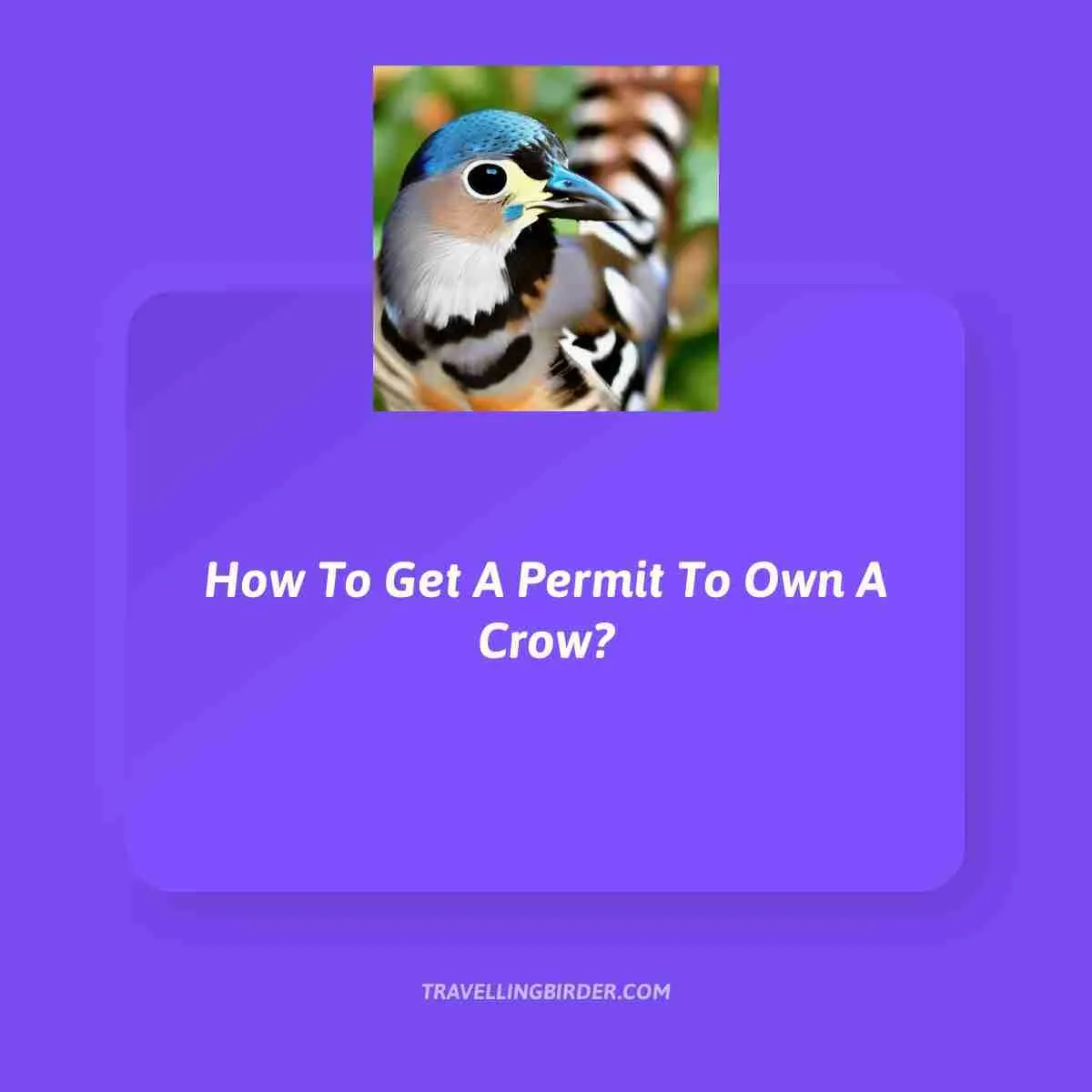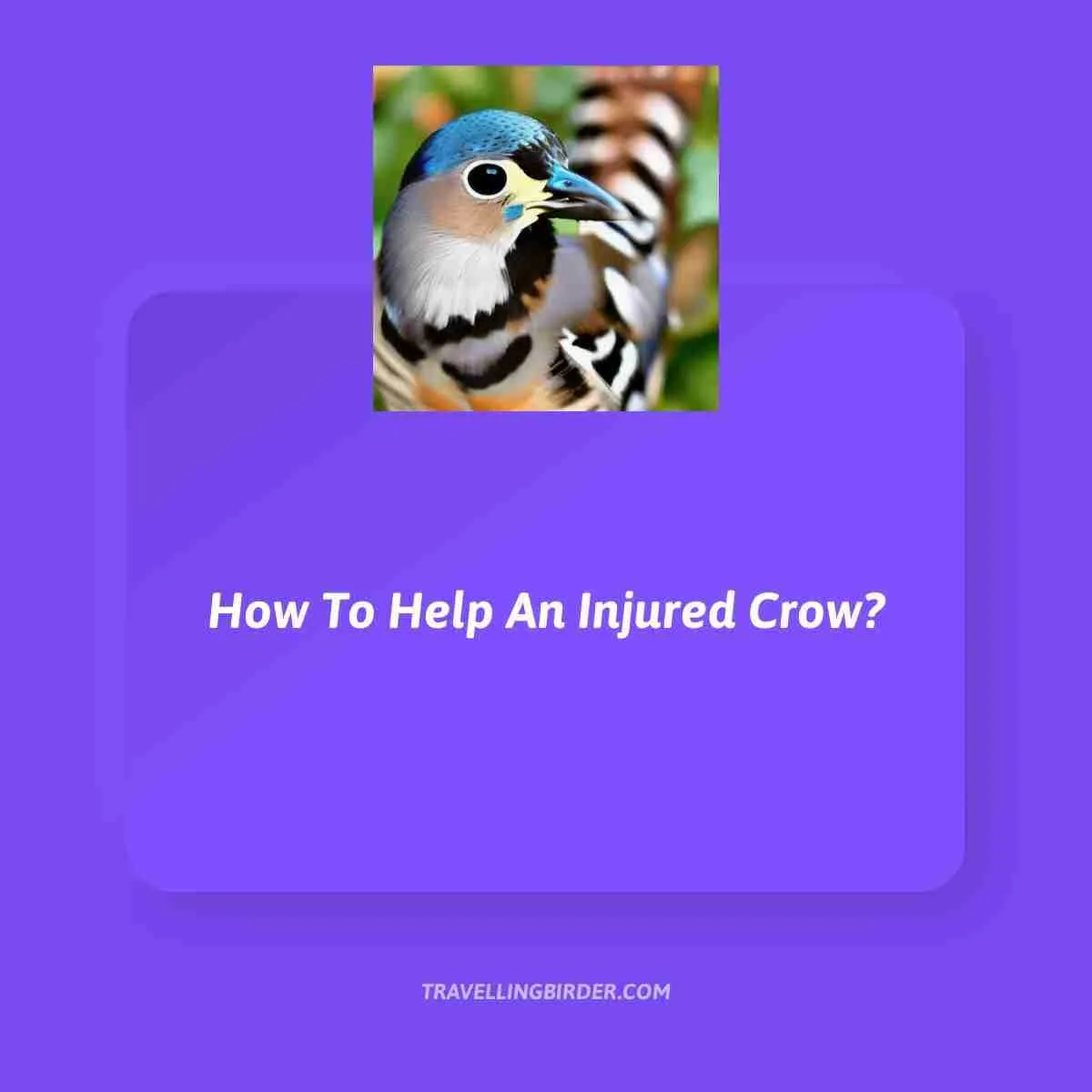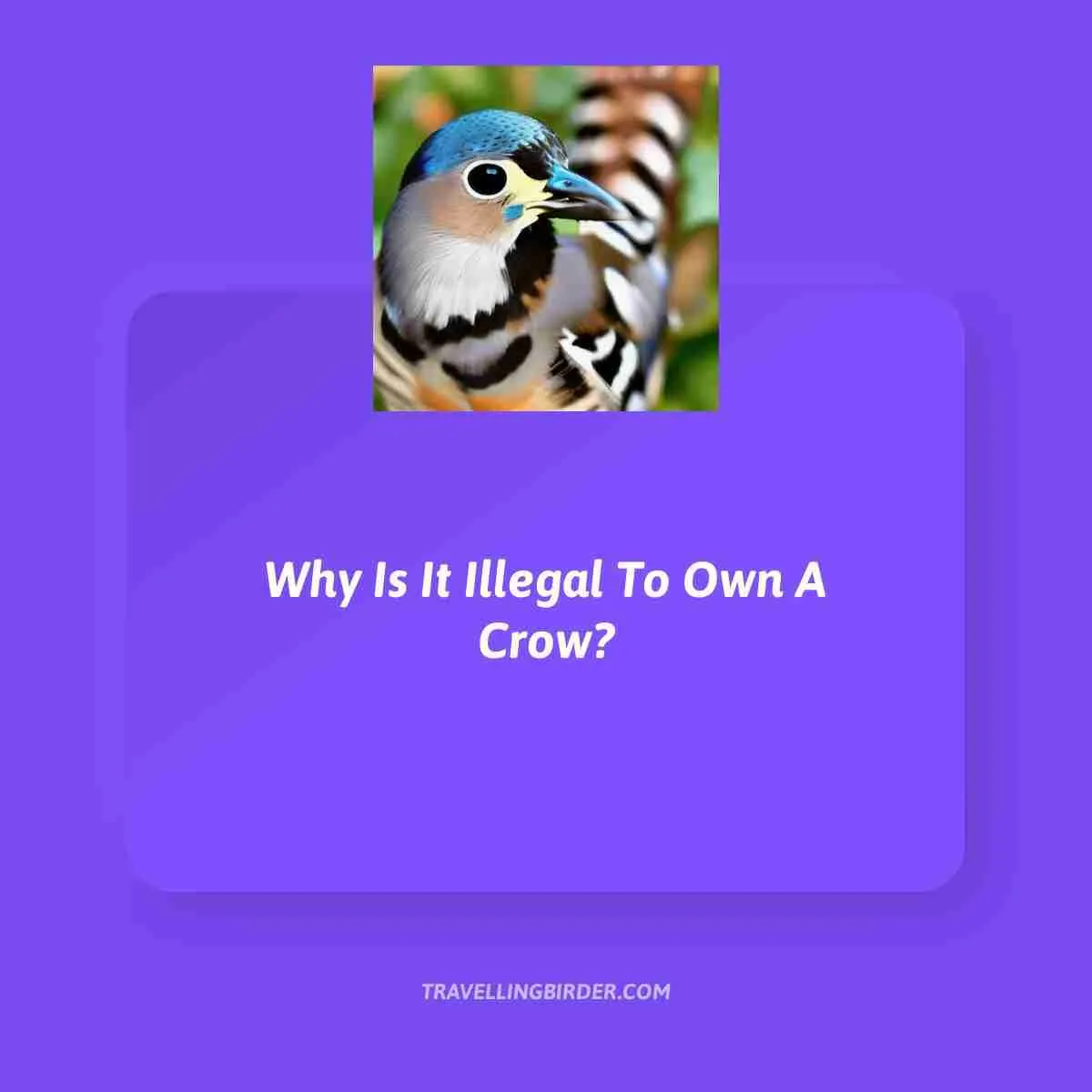Crows are fascinating birds, and many people have a desire to own one. However, owning a crow is not something that should be taken lightly; there are rules and regulations in place that must be followed if you wish to obtain a permit for ownership. As an ornithologist, I’m here to provide insight on the necessary steps needed for acquiring a legal permit for possession of a crow.
First off, it’s important to know what type of permit you need in order to keep crows as pets. For starters, you’ll need an exotic pet license from your local wildlife agency or department of natural resources. This will allow you to legally possess and maintain a certain number of crows at any given time. Additionally, depending on where you live, there may be additional state laws or municipal ordinances governing the keeping of wild animals like crows as pets.
Finally, it’s essential that all potential owners understand the responsibility they take on when they acquire such an animal – understanding the proper care requirements and having appropriate housing facilities ready before bringing home a new companion is key! With these considerations in mind, let’s dive deeper into how to get a permit to own a crow responsibly.
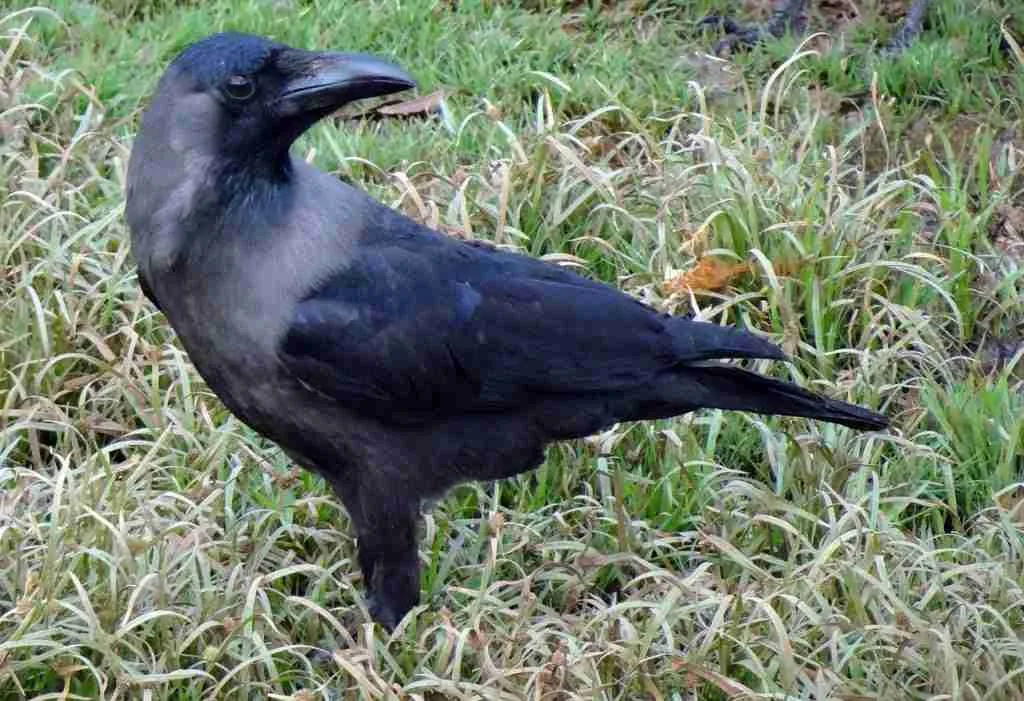
Laws And Regulations
The laws and regulations surrounding the ownership of crows are absolutely staggering! In many places, it is simply impossible to get a license or permit for keeping this majestic bird as a pet. The restrictions on owning one vary from region to region, but they all put ownownership out of reach for most people. As an ornithologist, I can tell you that these laws have crippled our understanding of crow behavior and biology in ways we cannot even begin to imagine. We must find a way around them if we ever hope to unlock the secrets hidden within these remarkable creatures. With that said, let us turn now to licensing requirements needed for acquiring such a permit.
Licensing Requirements
In order to legally own a crow, one must obtain the proper permit from their local wildlife agency. The permitting requirements for crows vary between states and countries, so it is important to research the exact rules in your jurisdiction. Generally speaking, however, there are three main elements of such licensing:
- A background check
- Completion of an approved training course on animal caretaking
- Proof of adequate housing and food supply for the bird
The background check ensures that the prospective owner has no history of neglect or abuse towards animals. Furthermore, the training course verifies that they have sufficient knowledge about providing humane treatment to birds, especially those with long lifespans like crows. Finally, proof of appropriate living conditions confirms that the environment will be suitable for a healthy crow. Therefore, these factors combined serve as essential criteria when obtaining a license to keep this species as a pet.
Documentation Needed
In order to own a crow, one must have the proper documentation. This paperwork is essential for ensuring safety and well-being of both owners and crows alike. The first document required is a state-issued permit from your local wildlife agency or department of natural resources. It will provide authorization to acquire and keep the crow in captivity. Additionally, proof of rabies vaccination may be necessary depending on where you live; this can typically be obtained through the same office that issues permits.
Next, it is advisable to become familiar with all relevant laws regarding ownership of crows within your area as these regulations vary greatly by region. Furthermore, some municipalities may require further documentation such as a certificate of veterinary inspection prior to granting permission to own a crow. Be sure to research any additional requirements before beginning the application process.
Application Process
Obtaining a permit to own a crow is an involved process that requires the completion of several steps. First, one must contact their local wildlife agency and inquire about the legalities of owning a crow in their state or region. Depending on the jurisdiction, there may be different laws governing ownership and keeping of certain species; thus it is important to understand what regulations are applicable. Upon satisfaction of these requirements, applicants will need to submit an application for a permit with supporting documentation such as proof of identity and address, prior experience caring for crows (if any), and other pertinent information. Following review by officials from the agency responsible for issuing permits, permission to keep a crow may be granted. It should also be noted that some jurisdictions have restrictions regarding age limits or qualifications when applying for permits related to wild animals. Thus, potential owners should ensure they meet all criteria before submitting their request.
Once approval has been obtained, careful consideration must then be given to potential consequences associated with permitting crows into captivity.
Potential Consequences
Though the application process may seem simple, there are several potential consequences associated with owning a crow. Alluding to Mark Twain’s quote “It’s easier to stay out than get out”, it should be noted that once you obtain your permit and own a crow, there is no turning back. Though crows can make wonderful pets when properly taken care of and trained, they require an immense amount of time and effort which some find difficult to commit. Additionally, if not given adequate attention or proper training, these birds could become unmanageable and even aggressive towards humans. In addition to the physical repercussions of having such a pet, mental effects such as stress and anxiety must also be considered due to the sheer responsibility one bears in taking on this type of animal. Moreover, failure to comply with regulations from local wildlife agencies can result in harsh penalties like hefty fines or jail time for those found guilty of breaking any laws concerning crows. With all these factors taken into account, it is clear that owning a crow requires much more forethought than initially expected. It is essential that anyone considering obtaining a permit weighs their options carefully before making any final decisions.
Frequently Asked Questions
Is There A Minimum Age Requirement To Own A Crow?
Owning a crow requires considerable research and preparation. One of the most important questions to ask is if there’s a minimum age requirement for owning one, as this will have an impact on whether or not you can obtain a permit.
To answer that question, it’s necessary to understand the legal framework in which crows are regulated. In many areas, crows are considered wild animals and therefore require permits from local wildlife agencies before they can be owned by individuals. However, some states do allow people under 18 years old to own crows with parental consent — though these rules vary greatly depending on location.
When considering owning a crow, it’s essential to take into account the bird’s natural behavior and temperament: Crows are intelligent creatures who need plenty of space and stimulation to thrive. Keeping them confined in small cages without adequate enrichment could lead to psychological issues like feather plucking or excessive vocalizations. Additionally, providing proper nutrition — such as fresh fruits, vegetables and high-quality pellets — is key for long-term health.
In addition, it’s important to remember that certain laws may exist restricting ownership of crows within city limits. It’s best to check with your local government regarding any relevant regulations before purchasing or taking possession of a crow so you can make sure you comply with all applicable requirements.
Understanding how each state regulates the keeping of wild birds is critical when deciding if you should pursue getting a permit to own a crow. Though there may not always be explicit age restrictions as part of obtaining permission, other factors such as being able to provide an appropriate environment must also be taken into consideration when making this kind of decision.*
*For more information about permitting requirements associated with owning wild birds like crows please contact your local wildlife agency directly
Do I Need To Provide Any Proof Of Ownership?
Owning a crow is like playing chess – you must make all the right moves in order to succeed. One of these moves includes providing proof of ownership when applying for a permit. As an ornithologist, I can attest that many states require this type of evidence along with other forms of documentation such as background checks and health clearances.
In most cases, there will be some form of verification process before the applicant is granted permission to own a crow. This may involve presenting original copies or certified documents showing legal possession or acquisition. Additionally, certain authorities may request photographs or alternative pieces of evidence such as affidavits from veterinarians or experienced bird owners to prove that they are capable and responsible enough to take care of the animal.
Therefore it is important for potential owners to research their state’s regulations on owning a crow, including any requirements regarding proof-of-ownership paperwork and licensing fees so they can start off on the right foot in obtaining a permit.
Is There A Limit To The Number Of Crows I Can Own?
When it comes to owning crows, questions often arise regarding the limits of ownership. While there are no specific laws that dictate a maximum number of birds one can own, many states do have restrictions in place. It is important to consult your local wildlife officials for any regulations and requirements in regards to crow ownership.
In general, avian enthusiasts should keep in mind that crows need plenty of space and attention to thrive; thus, having too many crows could lead to overcrowding or neglectful caretaking practices. Additionally, some areas may prohibit the sale of certain species as pets due to their status as protected animals. Therefore, it is essential to research all necessary permits before procuring any birds from an animal dealer or breeder.
Ultimately, potential crow owners must take into consideration both state-specific guidelines and individual bird welfare when deciding how many crows they want to own. To ensure responsible pet management and safety for both people and animals alike, prospective owners should look into applicable laws before making any decisions about how many birds they would like to bring home.
Are There Any Special Safety Considerations For Owning A Crow?
Owning a crow requires special safety considerations, as crows are wild animals and can be unpredictable. They possess remarkable intelligence, so it is important to provide an environment that meets their needs in order to ensure the most positive experience for both pet and owner. For example, take the case of “Jack,” who was brought home from an animal shelter when he was just two months old; his previous owners had been unable to care for him properly. Jack’s new family took great pains to make sure that he felt safe and secure by providing plenty of enrichment activities such as bird baths, rope swings and ladders, which kept him active and stimulated throughout the day.
In addition to providing adequate mental stimulation, it is also essential to consider physical safety factors when keeping a crow in captivity. Crows have powerful talons that can cause significant injury if not handled correctly. Therefore, it is important to keep them away from young children or other pets that may inadvertently startle them or aggravate them with loud noises. In addition, they must always be securely confined in order to prevent escape or potential harm to themselves. Moreover, since crows are very social creatures, it might be beneficial to introduce another crow into the enclosure – this will help reduce stress levels and improve overall wellbeing. Finally, regular check-ups with an avian veterinarian should also be part of your routine maintenance plan in order to monitor health status and identify any problems early on before they become serious issues.
It is clear that owning a crow comes with considerable responsibilities that cannot be taken lightly; however, with proper planning and dedication these magnificent birds can thrive under human care and bring joy into our lives.
Can I Keep A Crow In My Home As A Pet?
Owning a crow as a pet is an intriguing prospect for many bird lovers. However, the success of such an endeavor requires extensive knowledge and preparation on the part of the owner. Before even considering bringing a crow home, it is essential to understand the legal implications involved in owning this species of wild animal.
Crows are typically kept in aviaries or cages that meet state regulations concerning size and construction materials. As with other birds and exotic animals, crows require specialized care including proper diet and housing conditions. Furthermore, they can be noisy neighbors to those living nearby with their loud calls echoing through residential areas late at night. For these reasons, owners must consider if they have adequate space to host a crow before making any decisions regarding its acquisition.
It is also important to remember that although crows may be domesticated over time, they remain wild animals by nature and thus cannot replace pets like cats or dogs which have been bred for domestication purposes over generations. Therefore potential owners should take into account whether they possess both the physical resources necessary as well as the emotional commitment required when taking on such an exciting venture.
Conclusion
In conclusion, owning a crow can be a rewarding experience but it is important to understand the responsibilities that come with it. First and foremost, individuals over 18 years of age must obtain permission from their local jurisdiction in order to keep a crow as a pet. Additionally, applicants must provide evidence of ownership and follow any safety guidelines set out by local or state authorities.
When considering whether to own a bird such as a crow, one should take into account the time commitment involved; crows require daily care and attention just like other pets do. Providing them with proper housing, nutrition and veterinary care will ensure they remain healthy and happy – not to mention safe for both you and your feathered friend! Furthermore, when looking after any animal there is always an element of risk so make sure you’re prepared to ‘weather the storm’ should anything go wrong.
To sum up, owning a crow requires serious consideration before taking on this responsibility. With careful thought put into all aspects discussed here today – obtaining permission, providing proof of ownership, following safety rules – owning these beautiful birds can truly be an enriching experience.

An avid ornithologist, zoologist and biologist with an unwavering passion for birds and wild animals.
Dr. Wilson’s journey in ornithology began in childhood and led him to obtain a Ph.D. in Ornithology from the prestigious Avian Research Institute. He has worked closely with renowned experts in the field and conducted extensive research and field studies globally.
